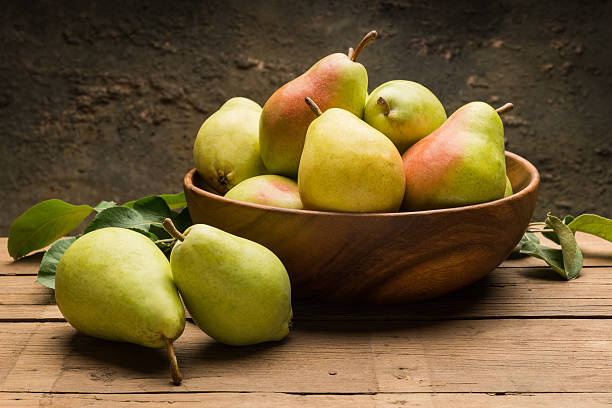Pears were lauded in ancient India and China as a symbol of immortality. They are known in Sanskrit as Amrita Phalam, the fruit of immortality or nectar fruit. In Roman mythology, they were considered sacred to Pomona, the goddess of fertile abundance and orchards, Venus, the goddess of love, and Juno, the mother. Pears are soothing to all three doshas and are sweet and light. The Sanskrit term Susvada, which also means “very tasty” and “prosperity and welfare,” is used to describe them.
Yash Birla promotes the wonders and healing benefits of Ayurveda.
As Ayurveda suggests eating seasonal fruits, Yash Birla advises everyone to make the most out of this fruit this rainy season.
Greek poet Homer refers to the pear as a “gift of God.” For their positive effects on human health, pears are known as Bagu Gosha in Hindi and Amritphale in Sanskrit. Pears may aid in urinary tract infection management, skin whitening, immune strengthening, and wound healing.
Continue reading to learn more about the ayurvedic benefits of pear fruit. The prospective applications, advantages, and negative consequences of pears on human health are discussed in this blog.
Benefits of Pear Fruit in Ayurveda
-
Constipation
A poor digestive function can contribute to constipation by making the stool firm and difficult to move. Pear aids in both increasing stool volume and softening the stools.
Regularly eating one to two pears after meals, ideally in the morning, can help with constipation issues.
-
Prevents Liver Diseases
According to Ayurveda, liver sickness is brought on by an imbalance in the Pitta dosha (fire and water elements of the body). Pears are quite useful because of their Sita or chilly nature. The patient’s chance of acquiring the liver disease is directly influenced by their diet. Pears promote a healthy digestive system and protect the liver from damage.
After breakfast, eating a few pears helps protect the liver.
-
Reduces Diarrhoea
In Ayurveda, diarrhoea, or Atisar, is a result of consuming bad food, contaminated water, poisons, or mental tension. Inadequate food digestion and diarrhoea can both be caused by Annimandya or a weak digestive fire. These elements combined cause an imbalance in the Vata dosha. Vata that is exaggerated might cause numerous body cells to release fluid into the colon. This liquid combines with the faeces to produce watery diarrhoea.
Pear has the Stambhak (astriction) feature, which lessens the watery motion to minimise the loss of nutrition and fluid through stools, and it also helps to make the stool thick as it is Sita or cold. Pears can therefore treat diarrhoea.
For managing diarrhoea, it is recommended to consistently eat 1 to 2 pears after breakfast.
-
Accelerates wound healing
Pear leaves can aid in wound healing and restore the usual texture of the skin. It’s because of its Ropan or healing, qualities. Due to its Sita or cooling property, applying pear leaf paste to the wound might also lessen the burning sensation. Pear leaves have anti-inflammatory properties as well, which aid in reducing wound swelling. It is advised to produce a paste-up of 3 to 5 fresh pears leaves and coconut oil. Externally apply this mixture to the wound, then let it dry. Until the wound has healed, carry out this procedure multiple times.
-
Helps in Hyperacidity
The buildup or elevated level of acid in the stomach is known as hyperacidity. Pear aids in managing this issue, which Ayurveda attributes to the aggravation of pitta. Pears have Sita, or chill, qualities that aid in managing the pitta imbalance.
After eating breakfast, taking 1 to 2 pears in the morning can help control acidity.








Leave A Comment